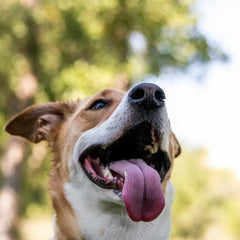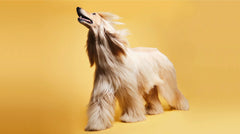Introduction
In our quest to provide the best nutrition for our beloved canine companions, many dog owners find themselves pondering the potential of various fruits and vegetables. Carrots, with their vibrant color and crunchy texture, naturally come under scrutiny. The question is: "Can my dog eat carrots?" This comprehensive guide seeks to provide clarity on this root vegetable's place in a dog's diet.
A Crunchy Treat or a Choking Hazard?
Carrots are often touted as a healthful snack for humans, packed with vitamins and fiber. But does the same apply to our furry friends?
Carrot Benefits for Dogs:
- Dental Health: The act of crunching on a carrot can help clean a dog's teeth.
- Low in Calories: Making them an ideal treat for dogs on a weight management plan.
- Rich in Fiber: Beneficial for digestion.
- Vitamins and Minerals: Carrots are a good source of vitamins A, K, and C, as well as potassium.
However, while the crunchy nature of carrots can be beneficial for dental health, it can also pose a risk. Particularly for smaller dogs or those that gulp down food, large chunks of carrot can be a potential choking hazard.
Potential Risks of Carrots
While carrots are generally safe for most dogs, there are a few concerns to keep in mind.
- Choking Hazard: Especially if offered whole or in large chunks.
- Overconsumption: Too much of any food can cause digestive upset. In carrots, excessive vitamin A can also be harmful, although it would require a significant amount.
- Pesticide Residue: If not properly washed, carrots might have residual pesticides.

How to Serve Carrots to Dogs
If you decide to introduce carrots to your dog's diet, it's essential to do so safely and in moderation.
Serving Suggestions:
- Raw or Cooked: Dogs can eat both raw and cooked carrots. However, ensure cooked carrots are unseasoned.
- Sliced or Shredded: To reduce the risk of choking, especially for small dogs, offer carrots in thin slices or shredded form.
- Carrot Sticks: For larger dogs, carrot sticks can be a crunchy treat that also promotes dental health.
- Frozen Carrots: These can be a refreshing summer treat but always offer them in manageable sizes.
- Avoid Additives: Ensure the carrot doesn't have any additives or seasonings, which can be harmful.
FAQs: The Carrot Conundrum Resolved
1. Can puppies eat carrots?
Yes, puppies can safely consume carrots. However, due to their smaller size and developing teeth, it's best to offer them soft, cooked carrots in small pieces.
2. How often can I give my dog carrots?
Carrots are best served as an occasional treat, not a regular diet staple. Depending on your dog's size, a few slices or a small carrot every other day should suffice.
3. My dog seems to have an upset stomach after eating carrots. What should I do?
Some dogs might be sensitive to sudden dietary changes. If your dog shows signs of digestive upset, it's best to consult with a veterinarian and perhaps limit or eliminate carrots from their diet.
4. Are the green tops of carrots safe for dogs?
Carrot greens are non-toxic but offer them in moderation as they can be rough on some dogs' stomachs.
Conclusion
Carrots can be a delightful and nutritious treat for dogs when offered correctly. They bring a mix of vitamins, fiber, and that satisfying crunch that many dogs love. However, as with all foods, moderation is key. By understanding the potential benefits and risks, dog owners can confidently offer carrots as part of their pet's varied and balanced diet.




